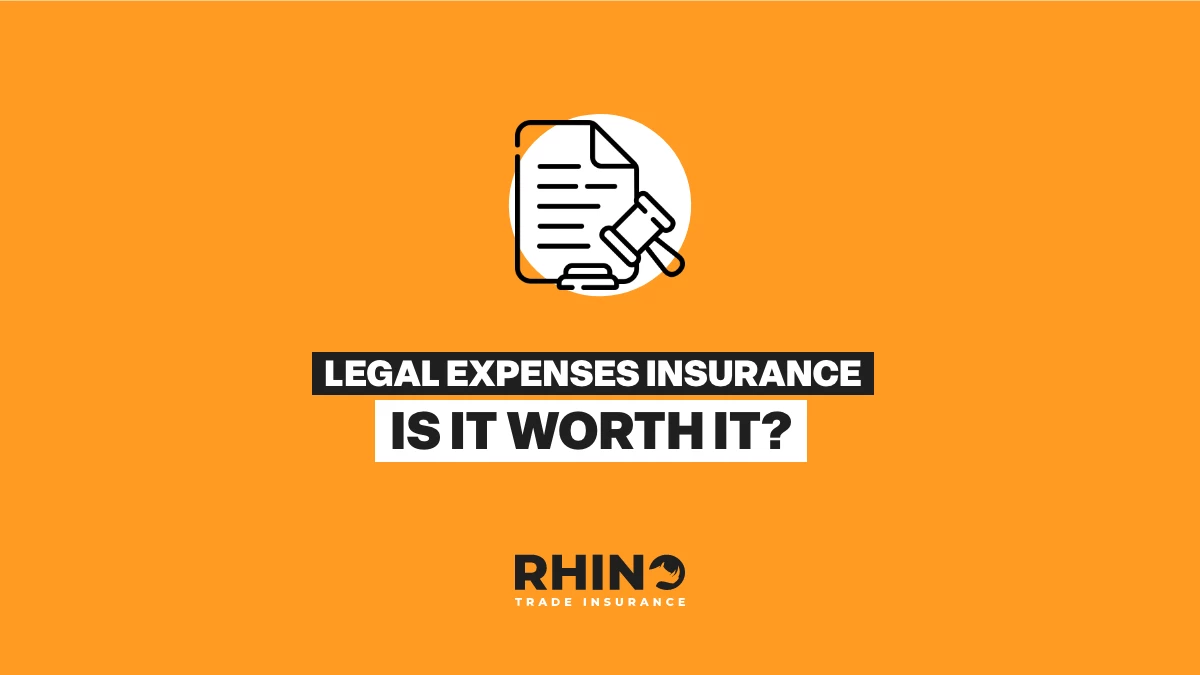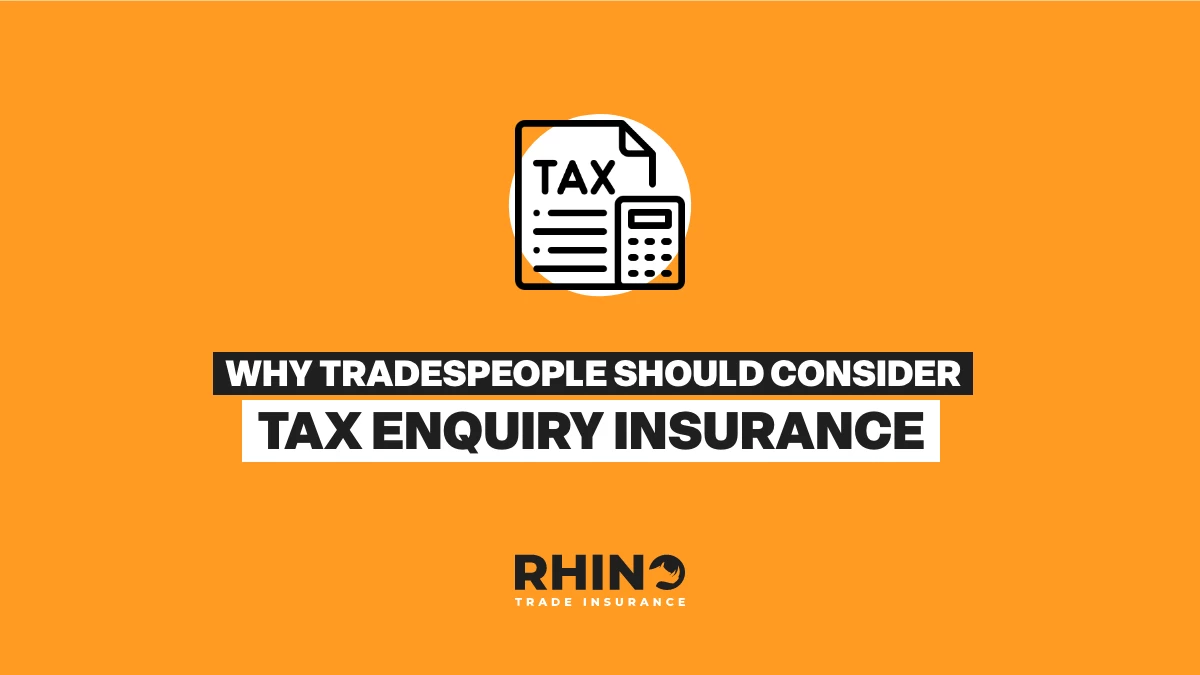
Legal Expenses Insurance – Is it Worth It?
Legal Expenses Insurance for tradespeople explained—what it covers, when you might need it, and how it protects against costly legal fees.
Health and safety is paramount and tradesmen need to be aware of their responsibilities, including having the right tradesman insurance for their needs.
A staggering number of accidents still take place at work each year despite a much stronger approach to health and safety in recent years.
More than half a million non-fatal accidents involving varying degrees of injury were reported in the workplace in 2018. As a result, over 30 million working days were lost at an estimated cost of £15 billion.
You might be inclined to think these accidents happen in big companies involving industrial processes, but that’s not always the case. An awful lot of them – the majority in fact - take place in sectors where self-employed tradesmen operate widely. From construction through to farming and land management, accommodation and food services, and service trades such as motor repairs.
And because of regulations introduced five years ago, it’s absolutely clear the Government holds the small trader just as responsible for health and safety in the workplace as the big companies - that goes for self-employed tradespeople too.
Under RIDDOR (Reporting of Injuries, Diseases and Dangerous Occurrences Regulations 2013) there’s a legally binding duty on employers, the self-employed and people in control of work premises to report serious workplace accidents, occupational diseases and specified dangerous occurrences or near misses. And these regulations leave no doubt that however small the operation, the ‘responsible person’ must make managing health and safety an integral part of their business.
As a tradesman in charge, you are responsible for carrying out a risk assessment and clearly identifying risks in your workplace, for putting in place sensible measures to control them, and for making sure they stay controlled.
You need to have a plan that describes how you manage health and safety in your business (your legally required policy) and how you make it happen in practice. You are expected to prioritise and control your risks, consult your coworkers and provide training and information, to measure how you are doing and learn from your experience.
So, tradespeople are looking here at weighty responsibility that somehow has to be fitted in with their day job. Not easy, but not to be pushed to the bottom of the pile either. It’s also important because RIDDOR encourages people to report accidents and it can be used to support claims made against tradespeople for personal injury resulting from an accident in their workplace.
The thousands of solicitors offering no win no fee services to potential claimants arguably encourage claims. And the range of claims has broadened to cover what might be described as everyday accidents. They might not be classified as serious but they still involve a degree of injury that can lead to a claim.
Like it or not, the majority of people are prepared to seek compensation if they’ve been hurt, made unwell or inconvenienced by an accident that wasn’t their fault. Builders and tradesmen with apprentices or employees would be wise to bear this in mind.
Solicitors are inevitably engaged by the claimant with the aim of agreeing to a figure out of court and if not, through the courts. This means a defending tradesperson will need a solicitor of their own to respond. The costs associated with this can easily escalate.
Another not uncommon scenario is that a tradesperson or someone working with them suffers personal injury as a result of the actions of a third party and wants to pursue damages from that third party. Then there is also the possibility of becoming the subject of criminal prosecution under health and safety legislation, or the need to appeal against the service of an Improvement Notice or Prohibition Notice. Any of these will involve substantial legal expenses.
Prevention of accidents is, of course, the best solution. And there is plenty of health and safety best practice to learn from and implement for tradespeople. But with the best will in the world, there are a lot of unforeseen factors on a building site or in a workshop. This explains why an increasing number of tradespeople are taking out legal expenses insurance. These policies provide cover which allows the self-employed to defend themselves against claims for compensation without worrying about the cost of legal representation.
The Rhino Tradesman Insurance policy of this type, for example, provides cover for legal fees of up to £50,000. It makes expert defence available to self-employed tradesmen and tradeswomen, to in effect make big guns available for the little guys. The cover comes with a legal helpline, which can be a really useful advantage when these kinds of disputes kick off.
With the high price tag for legal fees in personal injury claim work, this kind of insurance for tradespeople working in environments where accidents can and often do happen is a small overhead worth considering.
Legal Expenses Insurance for tradespeople explained—what it covers, when you might need it, and how it protects against costly legal fees.
Worried about a tax investigation? With HMRC cracking down in 2025, Tax Enquiry Insurance from Rhino gives UK tradespeople expert protection and peace of mind.
Rhino Trade Insurance CEO Troy Stevens joins industry leaders at the House of Commons to discuss the rising issue of tool theft—highlighting its impact on UK tradespeople and the importance of awareness and protection.
Tell us your trade and get a tailored insurance quote for your business in seconds
Our team of experts are available to talk to Mon-Fri 08.30-17.30 and Sat 10.00-14.00

